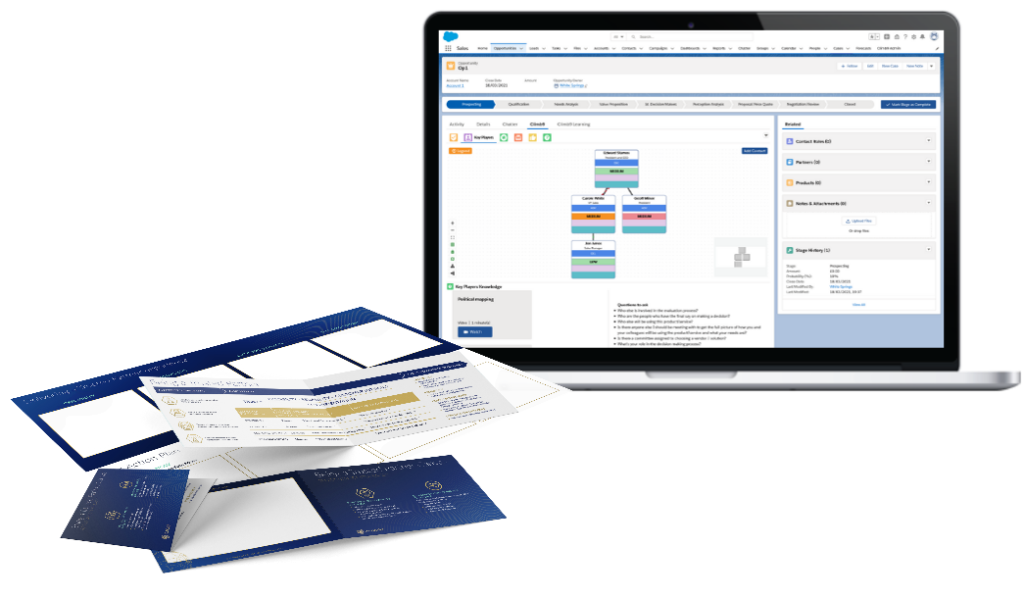Sales Coaching

3DSC™
Sales Coaching
Grow your business by growing your people.
Imparta’s research found a correlation between how well and how often a sales manager coaches their team members and the team’s performance. Unfortunately, not all sales managers are good coaches. The best salespeople are often chosen to be managers, and because they know what to do, they tell people what to do.
Great sales coaches act differently. They help their teams to figure things out for themselves, so they can do it on their own next time. That improves performance, increases engagement, and reduces staff turnover.
The 3D Sales Coaching™ program trains managers to identify coaching topics, to immerse themselves in the coachee’s situation, and to help them identify a clear set of goals, any obstacles to achieving those goals, and ways to overcome those obstacles. It also gives them the tools to build commitment to act and to follow up effectively.
This highly interactive program is based on more than 25 years of experience coaching the world’s leading sales teams, along with the latest insights from psychology and neuroscience. It forms part of Imparta’s 3D Curriculum.
Managers learn by going through a series of challenging coaching scenarios and real-life exercises. Imparta’s continuous improvement ecosystem helps to ensure they continue coaching with the right frequency and to the right level.

Course Overview
Key training topics include:
- Self-assessment of coaching styles and capabilities.
- Why, when, and how to coach. The i-GROW coaching methodology.
- The 3D Advantage® and Mindset as applied to coaching.
- Diagnosing issues in terms of Skill (capability), Will (motivation), and/or Way (resources).
- Helping the coachee to identify and prioritize clear, achievable goals for the coaching session and for the issue being coached.
- Uncovering the barriers to achieving those goals, and root causes.
- Empowering the coachee to find ways to overcome any barriers and achieve their goals, including the use of creativity tools.
- Clarifying action plans and gaining commitment from the coachee.
3D Sales Coaching is often run back-to-back with a one-day version of whatever training the sales team is going through. We also provide coach-the-coach services to help embed coaching behaviors.

Impact
Impartaʼs 3D Sales Coaching Program has been shown to increase:
- Performance against a wide range of key performance indicators including number of leads, conversion and win rates, deal velocity and deal size, share of wallet, and account profitability.
- Individual performance and effectiveness; the number of top performers and percentage attaining quota.
- Employee retention and team engagement through improved development and recognition.
What is Coaching?
Effective coaching requires a genuine shift in emphasis, away from the coach, and towards the coachee. The following animation explains the ideas that lie at the heart of Imparta’s coaching program.

Who is it For?
This program has been designed for sales leaders as well as the line managers of customer-facing sales, account management, and customer success teams.
Any managers whose team members are enrolled in any of the courses in Imparta’s sales curriculum would particularly benefit from this program.
It is also relevant for sales professionals who could benefit from a better understanding of coaching in a sales environment, for example, to support peer-to-peer coaching.

Formats and Duration
The program is part of Imparta’s modular curriculum.
It is available as:
- eLearning (full modules, plus individual assets that you and your teams can embed into playlists).
- A 1-day instructor-led face-to-face workshop that can be combined with a day on how to coach the specific methodologies that their teams are being trained in.
- 2 four-hour virtual instructor-led sessions.
- Modules that can be combined with other courses.
The program also includes competency definitions, application tools, measurement and reinforcement tools including nudge questions, and manager coaching guides.
We also recommend coach-the-coach sessions to drive the quality and quantity of coaching.

Application Tools
Coaching tools (Canvases) are available in print, editable PDF, and Excel versions. They are also available as native Salesforce tools and standalone tools within our platform.
The Canvases help managers to embed their new skills, and to tackle difficult coaching challenges going forward.

Explore the modules
The Power of Coaching
Understand the difference between empowering coaching and other forms of performance support, what coaching can achieve, and why it works. Be able to use i-GROW, a powerful coaching model that adapts to a variety of coaching situations across sales and customer experience.

Immersion
Immerse yourself fully into the situation to be coached. Create a good coaching environment, build rapport, and bring insight to the issues that need to be worked on. Then go beyond, to explore how the coachee is feeling about the issue, and about the coaching conversation itself.

Goal
Ask questions and work collaboratively with your coachee to help them identify what they want to achieve in the context of the issue being coached, and in the coaching session itself. Set positive, SMART goals and help to prioritise them.

Reality
Explore the reality of the current situation and any barriers to achieving the goals that have been agreed. Drill down to uncover the root causes of those barriers, and understand whether they are related to Skill, Will or Way.

Options
Ask insightful questions that lead the coachee to identify options for achieving their goal. Use creativity tools to help them develop a robust set of options, and help to prioritise the ones they will commit to, based on effort and impact.

Way Forward
Help the coachee to formulate a plan they will commit to, including next steps, any resources they will need, what risks they should consider, and how (and when) they would like to follow up with you. Build their motivation to act, and ensure they trust that you will support them.

Coaching from sales managers is critical for us; Imparta has helped us to focus the activities of managers on those that create improved sales capabilities, making them more effective, and dramatically improved our performance.
Sales Leader, Manufacturing
Working with us also means
An annual fee per user gives you access to the whole curriculum, as needed, for around the cost of a single course each year. Even trainer days can be bought on subscription, allowing you to budget ahead and respond quickly as your markets change.
We work with companies across the globe, drawing on over 100 facilitators around the world and our in-house translation team.
Imparta’s i-Coach® platform is an award-winning LMS/LXP that powers each of the 5C use-cases for front-line capability building. Or you can deploy the entire 3D Advantage® Curriculum using your own platform.





